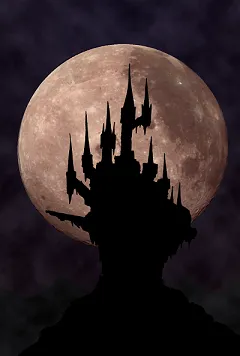
Wow I am shocked I haven't blogged about this before.
Did a little digging back on my own blog posts and noticed that I've only vaguely referenced this project that I think about every once and a while... of course there's a good reason for that.
Hm yeah and that was back in summer 2023!
Wen moon indeed!
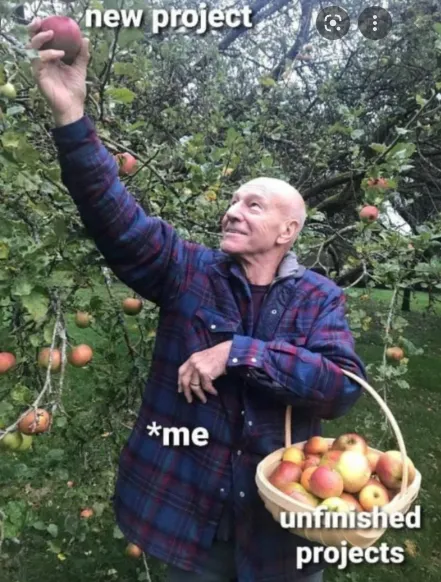
That being said, with AI making gigantic leaps and bounds on top of my faith in 2025 being a fabulous year for crypto... my thoughts have turned back to the pipe-dreams as it were. For example today I was thinking about what types of classes and archetypes I would use if I ever created this turn-based RPG.
One idea I was mulling around was having the the opening classes be basic and a little boring but, when they reach max level, they would then evolve into a more powerful class. I'm not completely married to the idea but I think it does have some merit and would somewhat set it apart from other games, while still being able to pay homage to the old classics I played as a child.
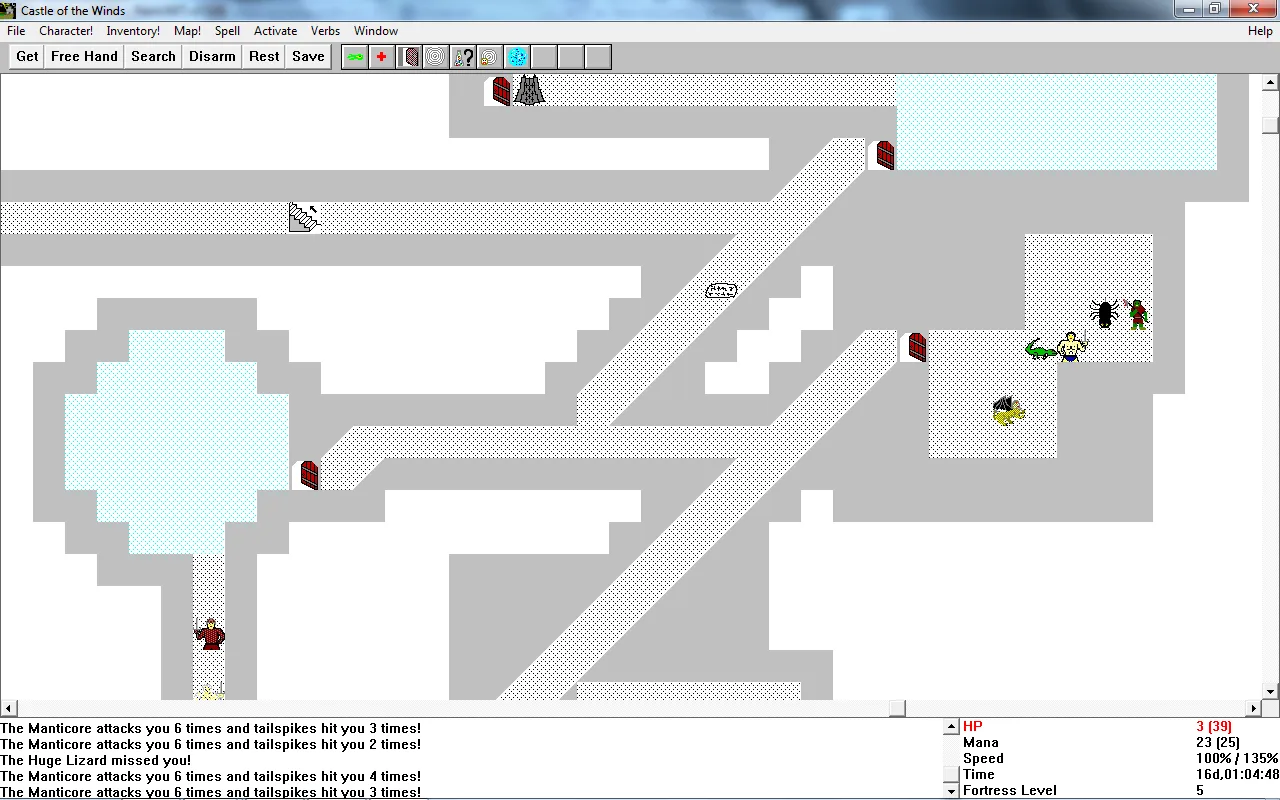
The cult following of this game speaks for itself.
Castle of the Winds was the first RPG game I played on PC. Many like to claim it was the beginning of the roguelike genre but I don't really agree with this at all. In roguelike games you're kind of supposed to die and it's extremely random. CotW allowed you to save the game and load where you left off if you happened to fall down a trapdoor and get wrecked. The inventory is also exactly the same style as a lot of other popular RPGs... and you level up and do all the normal RPG stuff which is not typical of roguelikes.
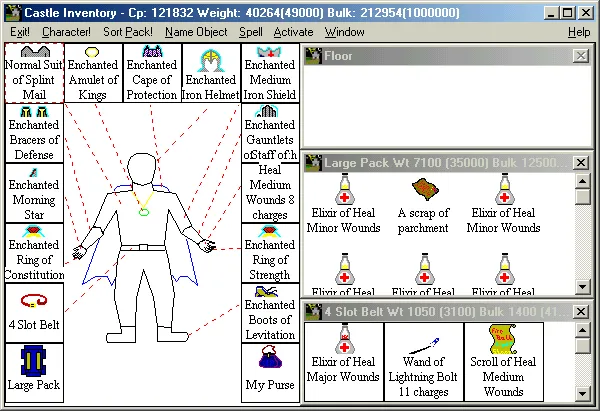
One of the weirdest things about this game is that there was a "time" in the game measured in days:hours:minutes:seconds. The easiest way to get your life and mana back was to sleep, and a lot of the time you'd just sleep in a dungeon and monsters would find you and attack you while you slept and you'd have to wake up and kill them to continue sleeping.
The thing that always kind of annoyed me as a kid was the fact that it would take multiple [in-game] hours to get your mana back but not very long to get your health back, so if you were a spellcaster you'd be sleeping way more than if you just focused on physical damage and only used mana to heal and teleport back to town. I always thought it was a weird mechanic... that and the fact that if your bags were overflowing with loot you'd become super slow and unable to run away as fast. Not only did strength let you swing your sword harder but it also let you carry more loot. This is when game developers started realizing that making game mechanics realistic isn't always the best way to go in terms of balancing. I've never seen a video game since try to incorporate both weight and bulk into a character's ability to hold loot.
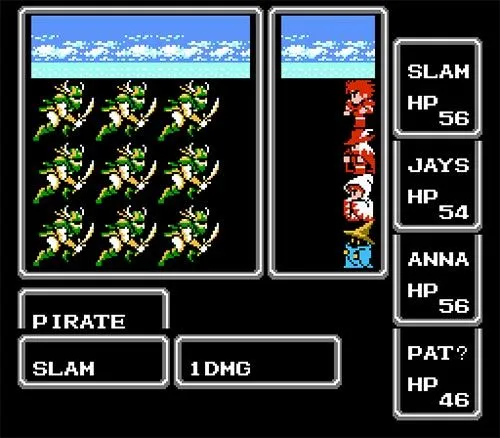
Final Fantasy
This was the first RPG I played on a console (Nintento). You might recognize one of the characters considering I've been rocking the red-mage avatar for 8 years straight. In fact I even beat the game a couple years ago using all 4 red-mages as my "Light Warriors". It's one of the only games like this I've played where you get to choose which classes you want to use. From here the classes were either hard coded into the game or you only picked a single hero (which isn't very conducive to turn based play and is basically only good for real time action).
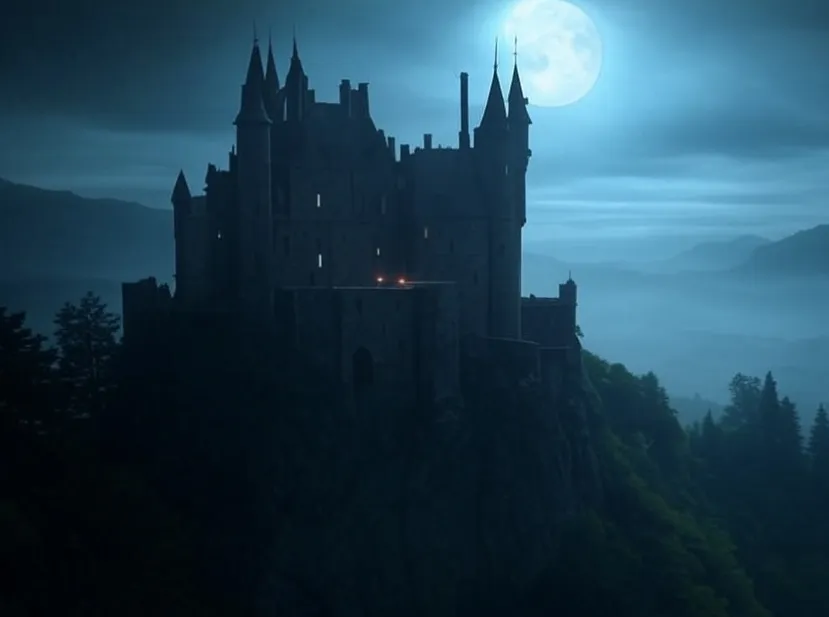
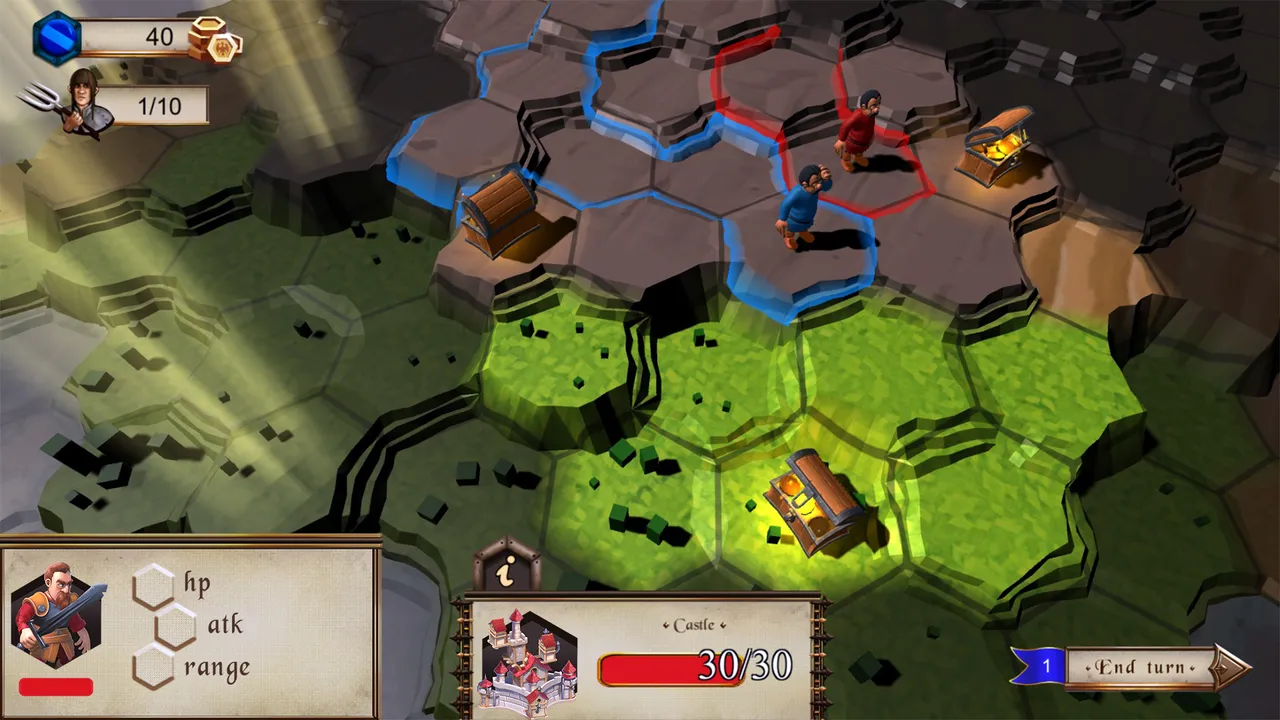
So how would Castle of the Moon be different?
I honestly should go out and find a lot more turn-based games to play just to make sure there aren't some killer mechanics developers have dreamed up that I don't know about yet. Darkest Dungeon was always on my list but alas I never played it. If you know of any good turn based strategy or RPG games let me know in the comments.
That being said I am a fan of the hexagonal structure, as opposed to a square grid, even though it adds a little complexity into the mix. However, one of the big gripes I always had with turn based combat, especially in things like the Final Fantasy series, is that positioning doesn't matter. All the characters are just standing in a void and taking swings at each other.
I find that style to be extremely annoying because it creates an environment that is way more of a mindless grind rather than the actual strategy game that it should be. If I can just mindlessly farm mobs a couple lowers level than me that pose no threat... get to max level and win the game without any problem... then what was even the point? Games, especially the watered down candy-colored ones of the modern era, completely lack any risk or excitement to them.
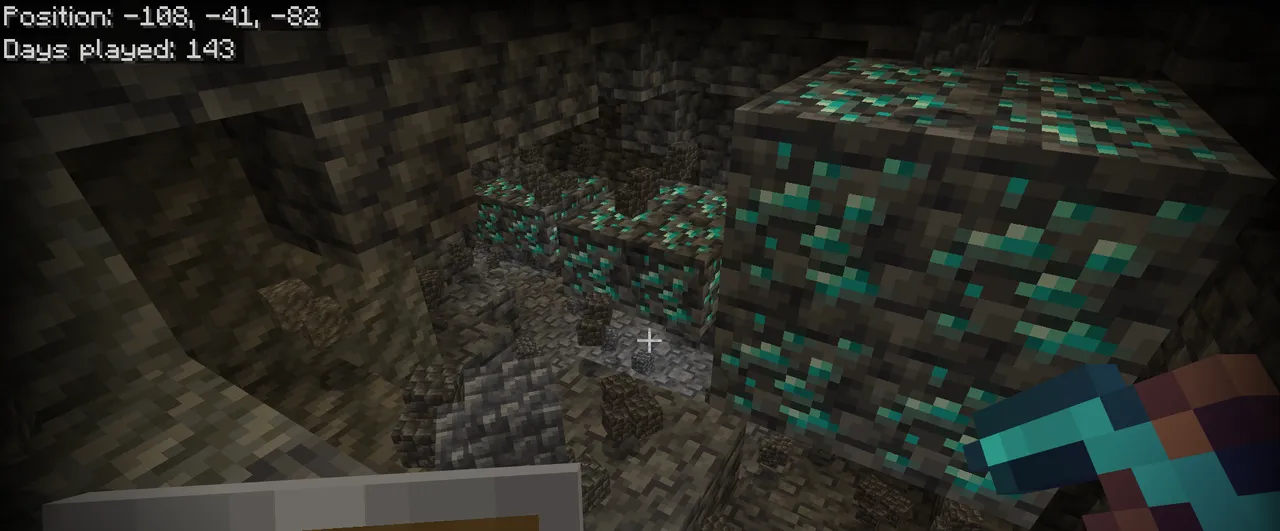
And that is the paradigm that I'd like to flip on its ear.
And now that we can add crypto and real money directly into the mix, there's really no excuse why something like this doesn't exist yet (other than overwhelming greed, underwhelming ingenuity, and relentless economic Sybil attack). I want to create a game that gives people adrenaline rushes when something intense happens. I want people to table-flip rage-quit the game because they just blundered and lost it all. I want someone to stream themselves having a panic attack. That's right: if someone doesn't get swatted and/or killed because of my game I will consider it a failure!?
How can such a thing be accomplished?
Well for one I want the game to be extremely difficult. I want to create an economic system that essentially forces everyone to work together in order to even make the game playable; maybe I'll call it Xtreme PvE or something cheesy like that. I also want the entire game to be balanced around hardcore-mode; meaning if your party dies you lose all those characters and all the gear they were wearing. And no matter where you are and what you are doing there's always at least a tiny tiny chance that you'll get extremely unlucky and be killed. That will certainly make people think twice about farming a low level area with their decked loadout. There needs to be a sweet spot where risk vs reward collide and force gamers to play the game how it's supposed to be played.
Conclusion
Well I didn't actually say any of the things I actually meant to say. Just goes to show you that even the most basic of games can get insanely complex when you start digging into the weeds. Luckily AI has been quite helpful in sussing out which parts are doable from the infeasible. I'll probably have to start working on an official game design document for this one sooner or later.